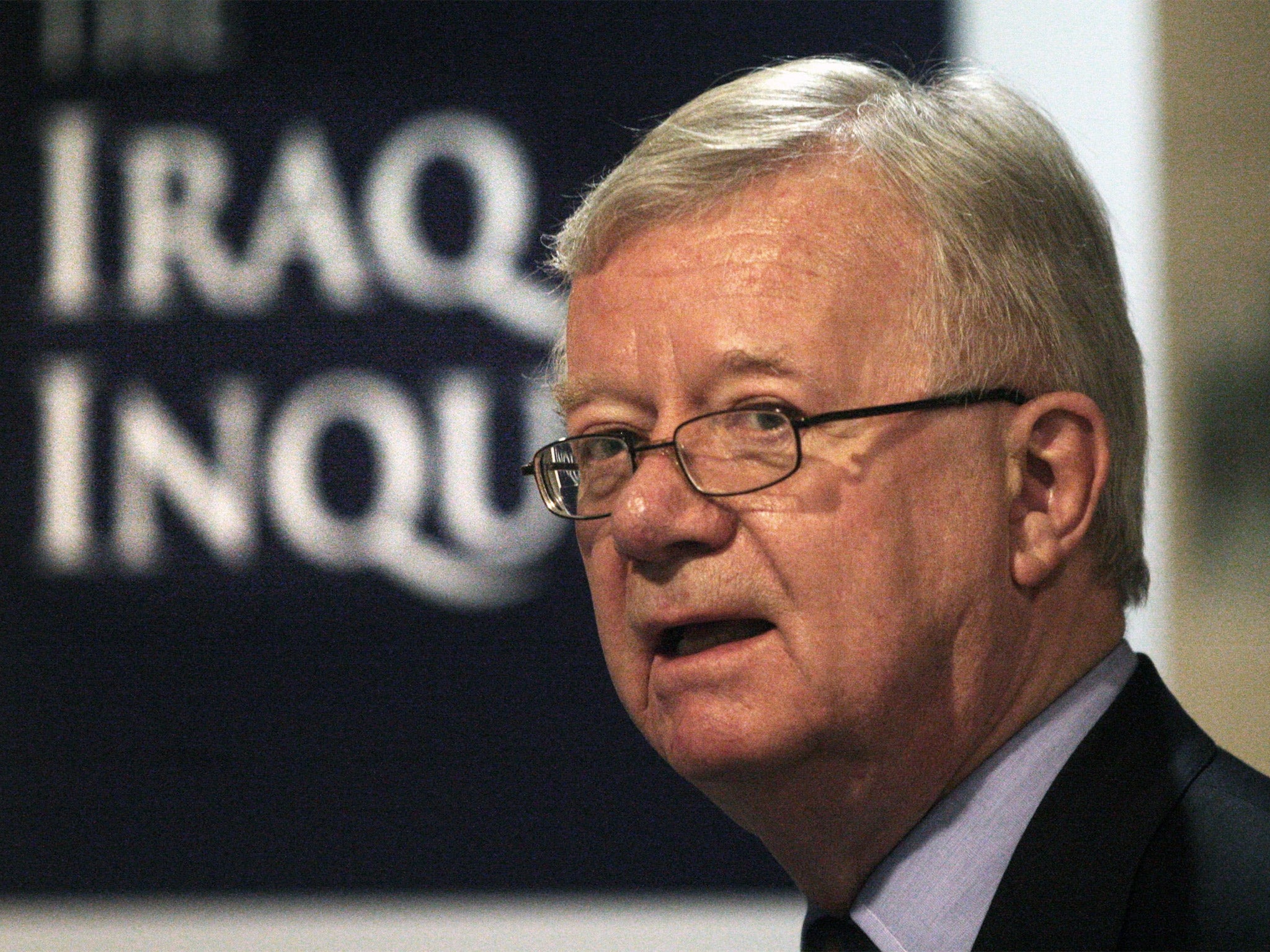Chilcot inquiry: Tony Blair should be 'dragged in shackles to court as a war criminal', says father of soldier killed in Iraq War
Families of soldiers killed in Iraq have threatened to sue Sir John Chilcot if he fails to publish his findings before the end of the year

Your support helps us to tell the story
From reproductive rights to climate change to Big Tech, The Independent is on the ground when the story is developing. Whether it's investigating the financials of Elon Musk's pro-Trump PAC or producing our latest documentary, 'The A Word', which shines a light on the American women fighting for reproductive rights, we know how important it is to parse out the facts from the messaging.
At such a critical moment in US history, we need reporters on the ground. Your donation allows us to keep sending journalists to speak to both sides of the story.
The Independent is trusted by Americans across the entire political spectrum. And unlike many other quality news outlets, we choose not to lock Americans out of our reporting and analysis with paywalls. We believe quality journalism should be available to everyone, paid for by those who can afford it.
Your support makes all the difference.Tony Blair should be “dragged in shackles” to court as a war criminal, according to the father of a son who was killed in the 2003 invasion of Iraq.
Reg Keys is one of a number of relatives of soldiers killed in the Iraq War who have threatened to take legal action against Sir John Chilcot if he does not publish his report into the war by the end of the year.
Mr Keys accuses him of failing to understand the feelings of the bereaved as the ongoing “Maxwellisation” process, whereby those criticised in the report are given time to respond before publication, continues to delay the inquiry six years after it was set up.

He said Mr Blair should be tried as a war criminal because of the 180 British personnel who were killed and the 3,500 Britons who were wounded, in addition to the thousands of Iraqi’s who were killed by Western forces.
The on-going coverage of the delays in the publication of the Chilcot inquiry was “like an open wound that is continually prodded,” Mr Keys said.
"The only way for me to move on from this now is to consign Iraq to history and part of doing so is to get this inquiry published,” he told the BBC.
"Yes I'd like to see Tony Blair dragged in shackles off to court as a war criminal because we have to bear in mind 180 British service personnel were killed here, over 3,500 wounded, two million Iraqis fled Iraq, over 100,000 innocent Iraqis have been killed.
"This is an inquiry into a war. This isn't an inquiry into, I don't know, the price of milk, the price of rail travel or the price of energy, and I don't think Sir John has actually got that to be honest, the gravity of what's happened here."
Mr Keys is part of a group of 29 families who have issued a legal ultimatum to Sir John, believing the law requiring inquiries to be concluded in a reasonable timeframe may have been breached.
Jack Straw, who served as Foreign Secretary at the time of the 2003 invasion of Iraq, said the delay in the publication of the report was nothing to do with witnesses to the inquiry and said he shared the families' frustration at the delay.
The chairman of the Foreign Affairs Select Committee, Crispin Blunt, said he did not expect to see the report before the end of the year but said the report will be stronger for having given those criticised the chance to respond.
"If the people being criticised have the opportunity to respond and for those responses if they are valid then to be incorporated into the report, or if not, not incorporated into the whole report, that does mean that the inquiry itself will carry even more authority," he said.
"I think that should be borne in mind, we are engaged in a process that is going to produce an inquiry into an immensely important historic event and the Maxwellisation process gives us the best chance of getting it right."
Sir John insisted last month that the inquiry, which was launched by Gordon Brown in June 2009, was making "significant progress" and in a letter to David Cameron he sought to explain why the process was taking such a long time.
“In a number of cases they have opened up new issues or referred to material that was not part of the evidence submitted to the inquiry, which we are considering with care,” he said, adding that his team would complete its task as quickly as possible.
However the retired civil servant added that there was no “realistic timetable for completion” and this will only happen “when all responses are in our possession and have been evaluated".
It drew an angry response from the Prime Minister, who said he was "disappointed" that the inquiry was unable to provide a timetable for completion and warned Sir John: "We are fast losing patience.”
He went on to inform him that he had instructed Sir Jeremy Heywood, the Cabinet Secretary, to meet Sir John to discuss how the civil service could help.
Join our commenting forum
Join thought-provoking conversations, follow other Independent readers and see their replies
Comments